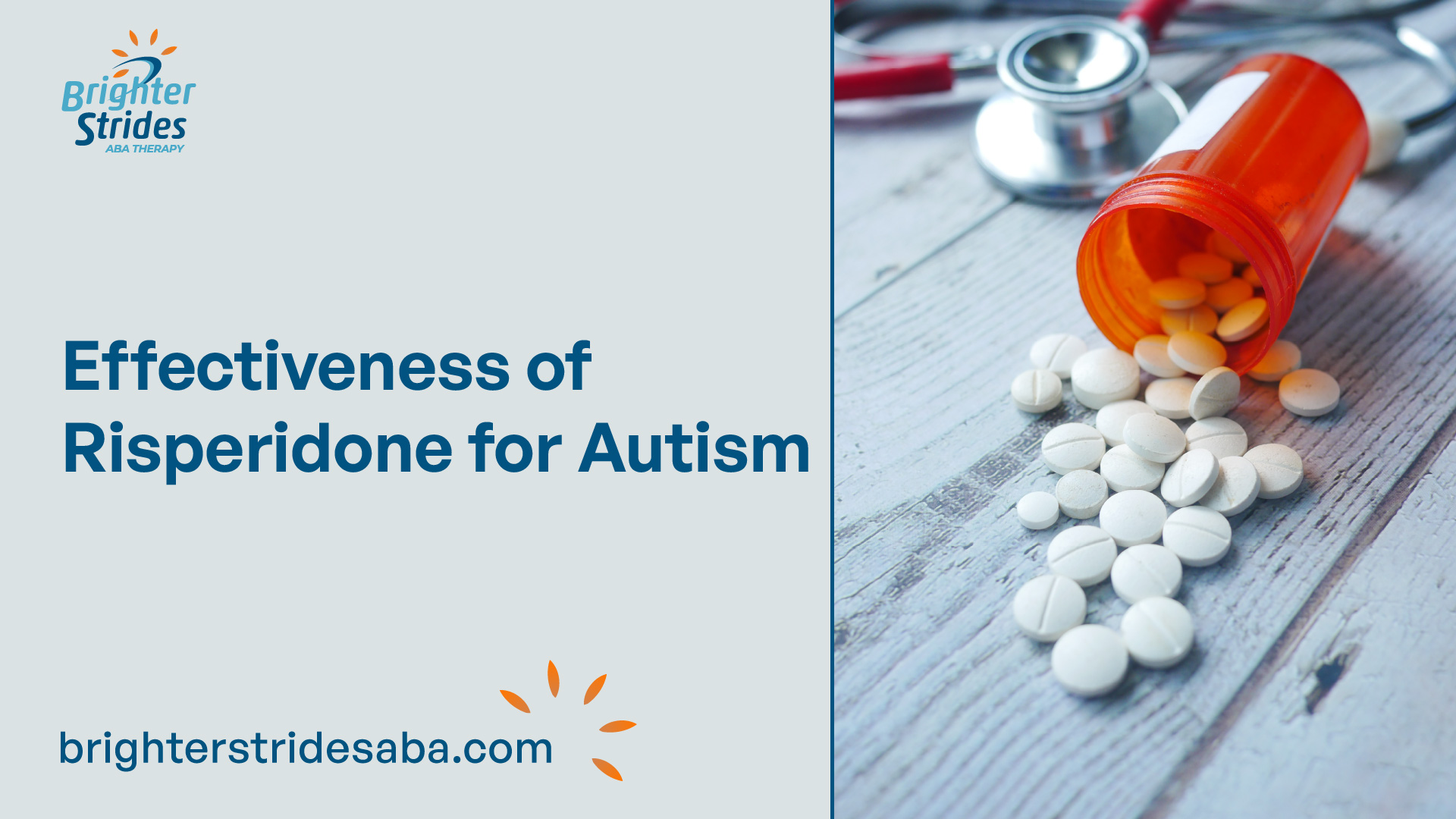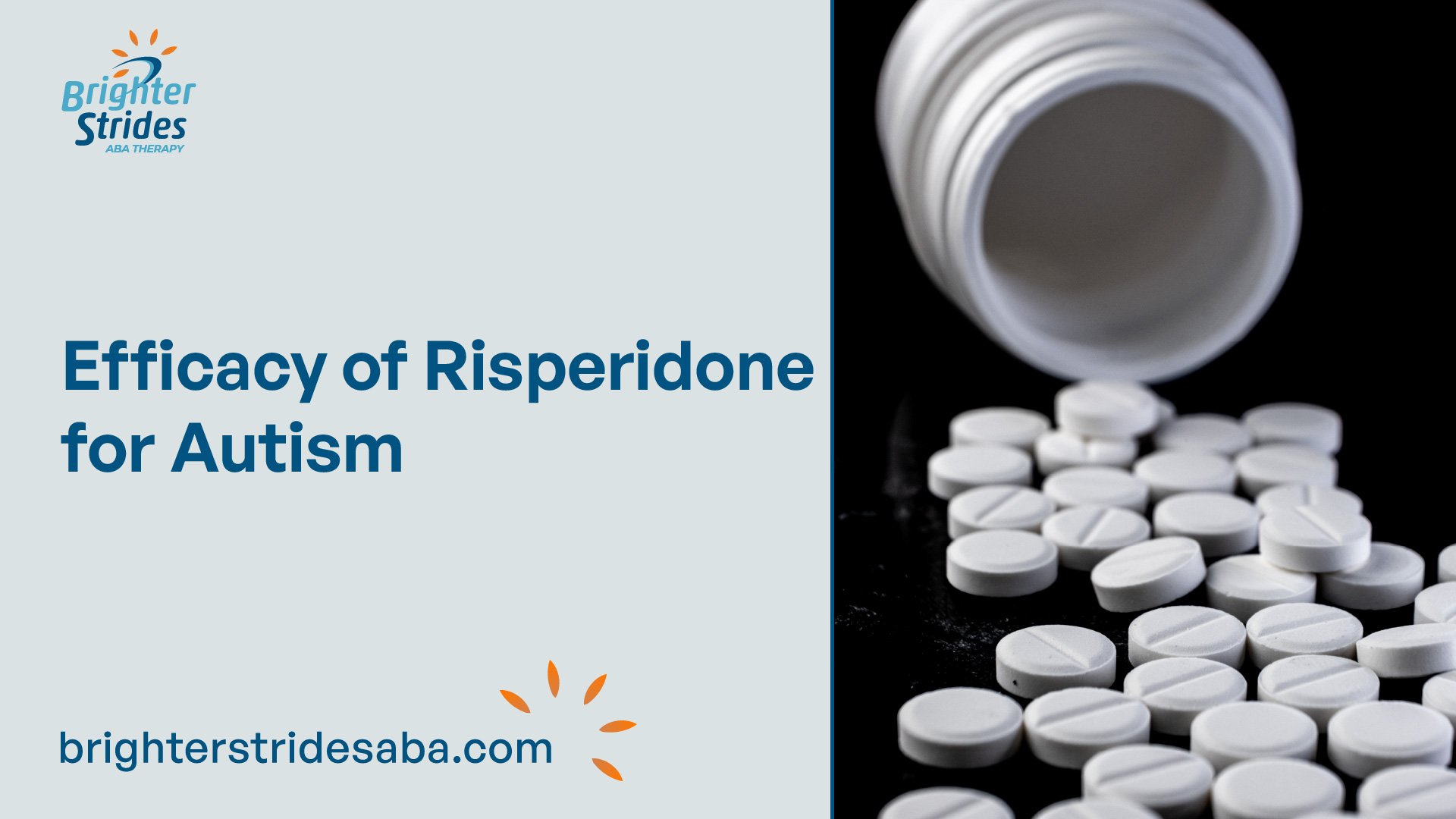
Understanding Risperidone for Autism
When it comes to managing Autism Spectrum Disorder (ASD), risperidone has emerged as a promising solution. This section will provide an introduction to risperidone and delve into its effectiveness in treating symptoms associated with autism.
Introduction to Risperidone
Risperidone is a Second Generation Antipsychotic (SGA) that has been approved by the FDA for the treatment of irritability associated with autistic disorder. It belongs to a class of medications that target certain brain chemicals to help manage symptoms of various mental health conditions.
Risperidone is widely used in the treatment of autism due to its ability to improve behavior in individuals with ASD. It has shown substantial effects on reducing explosive and aggressive behaviors that can accompany autism, with noticeable results within weeks.
Effectiveness of Risperidone for Autism
Numerous studies have demonstrated the effectiveness of risperidone in improving symptoms associated with autism, particularly in managing irritability. In clinical trials, significant improvements were observed when risperidone was administered compared to a placebo.
One study published in the Journal of Clinical Psychopharmacology found that risperidone led to a 43% improvement in the mean change in irritability among individuals with autistic disorder. The improvement in symptoms was observed in areas such as aggression, self-injury, and tantrums.

Risperidone has also been shown to reduce hyperactivity and repetitive behaviors, although it is important to note that the FDA has not formally approved it for these purposes. While the exact mechanisms behind its effectiveness in treating autism symptoms are still being studied, the positive impact on behavior is promising.
By understanding the introduction and effectiveness of risperidone for autism, it becomes evident that this medication holds potential in managing the challenging symptoms of ASD. However, it is essential to weigh the benefits against the potential risks and side effects associated with its use. In the following sections, we will explore these considerations in more detail.
Benefits and Risks of Risperidone
Risperidone is a medication that has been found to be beneficial in the treatment of symptoms associated with Autism Spectrum Disorder (ASD). However, it is important to consider both the potential benefits and risks when considering its use.
Improvement in Symptoms with Risperidone
Risperidone has been approved by the FDA for the treatment of irritability associated with autistic disorder. Studies have shown that risperidone can lead to a significant improvement in symptoms associated with autism when compared to a placebo. In fact, a mean change in irritability of 43% improvement has been observed.
Risperidone has shown effectiveness in treating symptoms such as explosive and aggressive behavior, tantrums, aggression, self-injury, hyperactivity, and repetitive behaviors. These improvements in behavior can often be noticed within weeks of starting treatment.
Association with Weight Gain and Waist Circumference
While risperidone can be beneficial in managing symptoms of autism, it is important to be aware of the potential risks. One significant concern is the association between risperidone use and weight gain, as well as an increase in waist circumference. This can be a cause for concern and necessitates the evaluation of the risk-benefit ratio when considering the use of risperidone.
Monitoring weight and waist circumference regularly is essential when using risperidone, especially in individuals who may already be at risk for weight-related health issues. This allows for early intervention or adjustments in treatment if significant weight gain or changes in waist circumference occur.
It is important to discuss the potential benefits and risks of risperidone with a healthcare professional. They can provide guidance on the appropriateness of risperidone for an individual’s specific situation and help monitor for any adverse effects or changes in weight and waist circumference.
Understanding the potential benefits and risks of risperidone is crucial in making informed decisions regarding its use for individuals with autism. Regular monitoring, open communication with healthcare professionals, and a comprehensive evaluation of the risk-benefit ratio are essential to ensure the well-being and safety of individuals receiving this treatment.

Efficacy of Risperidone for Autism
When it comes to the treatment of Autism Spectrum Disorder (ASD), risperidone has shown promise in addressing certain symptoms. Let’s explore the studies on risperidone’s effectiveness and the mixed findings on its impact on speech and lethargy.
Studies on Risperidone’s Effectiveness
Research has indicated that risperidone can be effective in improving symptoms associated with ASD. According to a study, risperidone has demonstrated effectiveness in reducing disruptive behavior symptoms and inappropriate speech in children with autistic disorder within six months. Furthermore, risperidone has been shown to improve symptoms of irritability, repetitive behaviors, and social withdrawal in individuals with ASD compared to those who received a placebo.
Mixed Findings on Speech and Lethargy
While risperidone has demonstrated efficacy in addressing certain symptoms of ASD, studies have shown contradictory or inconclusive results regarding its impact on speech and lethargy in individuals with ASD. Some studies have reported improvements in inadequate speech and lethargy with the use of risperidone, suggesting its effectiveness in these areas. However, the evidence is not consistent across all studies, and more research is needed to fully understand the effects of risperidone on speech and lethargy in individuals with ASD.
It is important to note that the effectiveness of risperidone can vary depending on individual factors, such as age, severity of symptoms, and overall health. It is always recommended to consult with a healthcare professional who specializes in ASD before considering any medication treatment, including risperidone.
As research in this field continues to evolve, further studies are needed to provide a comprehensive understanding of the effectiveness and potential side effects of risperidone for individuals with ASD. It is important to weigh the potential benefits against the risks and consult with healthcare professionals to make informed decisions regarding the use of risperidone in the treatment of ASD.
Considerations for Risperidone Use
Before considering the use of risperidone for autism, it is important to understand certain factors related to its usage. These include FDA approval and off-label uses, as well as potential side effects and adverse reactions.
FDA Approval and Off-Label Uses
Risperidone, also known as Risperdal, has been approved by the Food and Drug Administration (FDA) for the treatment of irritability associated with autistic disorder in children aged five to 17 years. However, it is worth noting that risperidone is also used off-label for other symptoms associated with autism, such as aggression, self-injurious behavior, hyperactivity, and inattention in individuals with autism.
It is important to consult with a healthcare professional before considering off-label uses of risperidone. They can provide guidance based on an individual’s specific needs and circumstances, weighing potential benefits against potential risks.
Side Effects and Adverse Reactions
While risperidone has shown effectiveness in reducing irritability, aggression, and self-injury behaviors in individuals with autism spectrum disorder (ASD), it is essential to be aware of potential side effects and adverse reactions.
One notable concern associated with risperidone use is its association with weight gain and waist circumference. Obesity, insulin resistance, metabolic syndrome, and the risk of developing Type 2 Diabetes Mellitus are some of the concerns related to inadequate weight gain and metabolic disturbances. Monitoring weight and waist circumference, along with appropriate dietary and lifestyle measures, is crucial when using risperidone for autism.
Additionally, like any medication, risperidone may cause side effects. Common side effects may include drowsiness, dizziness, increased appetite, and constipation. It is important to discuss these potential side effects with a healthcare professional and report any unusual or severe reactions promptly.
As with any medication, the decision to use risperidone for autism should be made in consultation with a healthcare professional. They can provide comprehensive information about the potential benefits and risks, taking into consideration an individual’s specific needs and circumstances. Regular monitoring and open communication with the healthcare team are essential to ensure the safe and effective use of risperidone.
Expert Perspectives on Risperidone
When it comes to understanding the use of risperidone for autism, insights from experts shed light on its benefits and drawbacks. Christopher McDougle, director of the Lurie Center for Autism at MassGeneral Hospital for Children in Boston, has extensively studied the use of risperidone in children and adolescents, emphasizing its importance in enabling children with autism to participate effectively in therapies by controlling behaviors like hyperactivity and aggression. Risperidone allows children to benefit from social services, educational programs, and behavioral interventions by helping them manage certain behaviors that may hinder their participation in such programs.
Insights from Christopher McDougle
Christopher McDougle’s research and expertise have highlighted the positive impact of risperidone on children with autism. By addressing issues such as hyperactivity and aggression, risperidone plays a crucial role in helping children participate in therapy sessions effectively. This medication can bring about dramatic changes in behavior in just a matter of weeks.
Balancing Benefits and Drawbacks
While risperidone has shown effectiveness in reducing irritability, aggression, and self-injury behaviors in individuals with autism spectrum disorder (ASD), it is essential to consider the potential drawbacks and limitations associated with its use. Side effects such as weight gain, sedation, increased appetite, and tremor have been reported, although they are generally mild to moderate in severity. Sleepiness is another potential side effect that needs to be considered.
The effects of risperidone on cognitive function in individuals with ASD are still not fully understood, and further research is necessary to explore its impact on long-term cognitive outcomes. Additionally, the potential risks of risperidone to metabolic function, weight gain, and cognitive function require further investigation. It is important to balance the benefits of risperidone in managing challenging behaviors with these potential drawbacks, and consult with healthcare professionals to make informed decisions regarding its use.
Considering the insights provided by experts like Christopher McDougle, it is evident that while risperidone offers benefits for individuals with autism, careful consideration of its potential risks and limitations is necessary to ensure the best possible outcomes. Continued research is needed to gain a deeper understanding of the long-term effects and to optimize the use of risperidone in the treatment of autism spectrum disorder.
Long-Term Effects and Further Research
As the use of risperidone for autism spectrum disorder (ASD) continues to be explored, there is a need for more comprehensive long-term studies to fully understand its effects. Specifically, the impact on cognitive function and metabolic abnormalities requires further investigation.
Need for Long-Term Studies
To gain a comprehensive understanding of the long-term effects of risperidone use in individuals with ASD, it is crucial to conduct studies that span a significant duration of time. Longitudinal studies can provide valuable insights into the potential benefits and risks associated with prolonged risperidone treatment.
By tracking the progress of individuals over an extended period, researchers can determine the efficacy of risperidone in maintaining symptom improvement and evaluate any potential changes in cognitive function, metabolic health, and overall well-being. Long-term studies are essential for assessing the safety and effectiveness of risperidone beyond the short-term benefits observed in initial trials.
Impact on Cognitive Function and Metabolic Abnormalities
The effects of risperidone on cognitive function in individuals with ASD are still being investigated. While some studies suggest that risperidone may have beneficial effects on certain cognitive domains, such as attention and executive function, more research is needed to establish a clear understanding of the drug’s impact on cognitive abilities in the long term.
In addition to cognitive function, the potential metabolic effects of risperidone use are an area of concern. Some studies have shown a significant association between risperidone use and weight gain, as well as an increased waist circumference in individuals with ASD. However, the full extent of these metabolic abnormalities and their long-term implications require further evaluation.
Further research is necessary to determine the underlying mechanisms by which risperidone may contribute to weight gain and metabolic changes. Understanding the metabolic impact of risperidone is crucial for informing treatment decisions and implementing appropriate interventions to mitigate potential risks.
As the scientific community continues to advance its understanding of risperidone’s effects on individuals with ASD, long-term studies are vital for providing comprehensive insights into the drug’s benefits, risks, and overall impact on cognitive function and metabolic health. Continued research will help healthcare professionals make informed decisions regarding the appropriate use of risperidone for individuals with ASD while prioritizing their long-term well-being.
References
- https://www.spectrumnews.org/news/risperidone-use-in-children-with-autism-carries-heavy-risks/
- https://www.ncbi.nlm.nih.gov/pmc/articles/PMC8206457/
- https://www.aafp.org/pubs/afp/issues/2009/0615/p1104.html
- https://www.cureus.com/articles/181668-the-effects-of-risperidone-on-cognition-in-people-with-autism-spectrum-disorder-a-systematic-review





